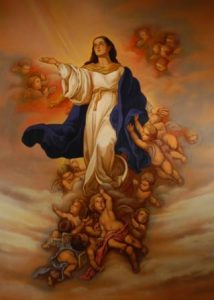In the second reading from Hebrews, the Lord admonishes us to “endure your trials as discipline” while in the gospel, he says “try to enter heaven through the narrow gate”.
Dearest sisters and brothers, the Lord’s admonition brings home the truth that the trials and difficulties of life, many times, are for our spiritual benefit. They unite us with the cross of Christ. When the Lord says, “try your best to enter through the narrow gate”, he is simply acknowledging that good works are important for our salvation.
Though salvation, objectively speaking, is a gift from God, subjectively, it “depends somewhat upon us, our personal decisions, our cooperation and the intensity of our efforts”. It is important to note that our good works will never be forgotten by the Lord as he says in the first reading from the Prophet Isaiah.
In responding to those that will remind him on the last day that he taught in their streets, the Lord would say, “I don’t know where you come from. Away from me, you evildoers.” Is Jesus really denying that he taught these people? Of course not, but rather that they did not listen. If they “did hear, they disagreed with what they heard, or if they agreed, they didn’t live by what they heard”. Simply put, their lives were never guided by the Lord’s admonitions.
Today, as he admonishes us to enter through the narrow gate, it is obvious that “narrow gate” is a metaphor that expresses the difficulties that fill our Christian calling. It is never going to be an easy one. That is why the world would rather us to abandon them to dance to its tune. An example is where the Lord says that people will remind him that they ate and drank with him and yet they will be cast out.
The above reference is especially true with regard to the Eucharist that many partake in today without living true to its meaning. Some even take it while being in the state of mortal sin without making use of the sacrament of reconciliation. This observation is very important today: Many people are no longer conscious of any personal sin.
Some shout “freedom of conscience” as if it is a declaration of independence from the teaching authority of the Church. As Christians, we are still bound by God’s laws made available to us through the moral teachings of the Church. Though many a time, they are difficult to follow, yet that is precisely what the Lord is asking us to do—to abide by them in order to be saved.
May we ask him the grace and strength to always live faithful to them!
